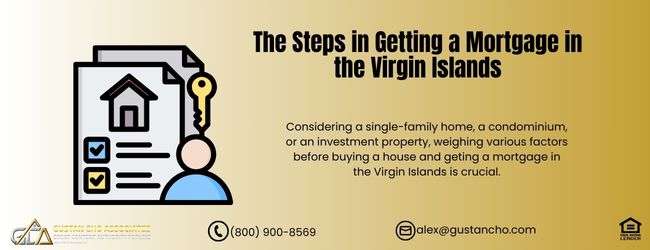HUD Guidelines on Bad Credit and Credit Scores on FHA Loans

This guide covers HUD Guidelines on bad credit and low credit scores on FHA loans. We will discuss HUD Guidelines on bad credit and how you can qualify and get approved for an FHA loan with outstanding collections and charge-off accounts. HUD guidelines on bad credit are the requirements and standards set by the U.S. Department of Urban Development, commonly referred to as HUD. HUD is the parent federal agency of the Federal Housing Administration, commonly known as FHA, for HUD-approved lenders to follow. Dale Elenteny, a senior loan officer at GCA Forums Mortgage Group, says the following about HUD guidelines on bad credit and low credit scores on FHA loans:
Lenders need to follow HUD Guidelines on bad credit and low credit scores in order for HUD to insure the FHA loans they originate. FHA Loans is the most popular mortgage loan program in the United States and has much more lenient mortgage lending guidelines than other mortgage loan programs.
FHA loans are the loan program of choice for first-time home buyers. Homebuyers with prior bad credit and lower credit scores also benefit from FHA loans. HUD allows 100% gift funds for the down payment on a home purchase. Also allows non-occupant co-borrowers to be added to qualify for additional income. More than one non-occupant co-borrower can be added to the mortgage loan on FHA loans. HUD Guidelines on debt-to-income ratios depend on the borrower’s credit scores. In this article, we will discuss and cover HUD Guidelines on Bad Credit and Credit Scores.
HUD Guidelines on Bad Credit and Low Credit Scores
HUD Guidelines on bad credit and low credit scores are generous. To qualify for a 3.5% down payment home purchase FHA insured mortgage loan, the minimum credit score required is 580 FICO. Borrowers with credit scores under 580 and down to 500 FICO credit scores can qualify for FHA loans. However, they will need a 10% down payment. If a borrower has credit scores of under 620 FICO credit scores, the maximum debt-to-income ratio permitted to get an approval/eligible per DU FINDINGS is 43% DTI. John Strange, a senior loan officer at GCA Forums Mortgage Group, says the following about HUD Guidelines on Bad Credit and Low Credit Scores:
Borrowers with credit scores of 620 FICO or higher can qualify for FHA-insured mortgage loans with debt-to-income ratios as high as 46.9% front end and 56.9% back end DTI. HUD, the parent of FHA, allows for manual underwriting on mortgage loan applicant’s who cannot get an automated approval.
All manual underwriting and borrowers with credit scores under 620 FICO credit scores require borrowers to provide verification of rent. Rental verification is only valid if the borrower can provide 12 months of canceled checks and/or bank statements that have been paid timely to the landlord. If the borrower is renting from a registered property management company, a VOR can be used in lieu of canceled checks and/or bank statements.
HUD’s Flexible Credit Guidelines Could Help You Buy a Home
Apply Online And Get recommendations From Loan Experts
HUD Guidelines on Bad Credit and Collection Accounts
HUD does not require borrowers to pay off outstanding collection accounts and charge-offs. HUD exempts medical collection accounts and charged-off accounts from debt-to-income ratio calculations. This holds true no matter how much the unpaid outstanding balance is. However, if the borrower has a total of $2,000 in unpaid outstanding non-medical collection accounts, then HUD requires that 5% of the unpaid outstanding collection account balance be used in the calculation of the borrower’s debt to income ratios. The 5% of outstanding collection accounts figure is just a hypothetical debt.
HUD Guidelines on Bad Credit and Credit Disputes
HUD does not allow credit disputes on non-medical collection accounts with a total aggregate unpaid outstanding collection balance of greater than $1,000. All non-medical credit disputes with outstanding balances need to be retracted and removed from the borrower’s credit report in order for the mortgage process to proceed. Zero-balance derogatory non-medical items are permitted with credit disputes. HUD does not count charged-off collection accounts and exempts them from debt to income calculations. But we cannot have any credit disputes on charge-off accounts. Charge-off account disputes need to be retracted before the mortgage loan process can proceed HUD does not care about credit disputes on outstanding medical collection accounts. This holds true no matter how much the outstanding unpaid balance is. Borrowers can have credit disputes on medical collection accounts. They can also have credit disputes on non-medical collections with zero balance reporting on credit bureaus.
FAQ’s on HUD Guidelines on Bad Credit and Low Credit Scores on FHA Loans
What minimum credit score is needed to obtain an FHA loan?
The U.S. Department of Housing and Urban Development (HUD) has the following score guidelines for FHA loans:
- 580 and above: eligible for a 3.5% down payment.
- The borrower is eligible for $500 to $579 with a 10% down payment.
- Below $500, FHA financing is not available without special circumstances.
Is qualifying for an FHA loan with poor credit possible per HUD Guidelines on Bad Credit?
The answer is yes. FHA loans are meant for individuals with lower credit scores. Some lenders might make allowances for borrowers with credit scores lower than 580, but they may need compensating factors like a low debt-to-income ratio, strong employment history, or large down payments.
Is there a credit score rule from HUD that lenders must follow?
HUD sets some credit score requirements; however, lenders can add stricter rules called “lender overlays.” Some lenders have overlays that require a 620 HUD permit borrower score or lower.
What else, besides the credit score, can dictate FHA loan approval?
Along with your score, lenders check the credit:
- Debts-in-incomes (DTI) ratio
- Usually, a maximum of 46.9% front-end and 56.9% back-end for FHA loans.
Payment History
Issues like missed payments, foreclosures, and bankruptcies may impact credit approval decisions.
Employment History
A stable employment history improves the chances of being approved.
Down Payment
Bad credit may be compensated through a higher down payment.
Compensating Factors
Savings, low debt-to-income ratios (DTI), or rental history can influence options and decisions.
Can I qualify for an FHA loan with recent late payments?
You can qualify, but late payments made within the last 12 months may raise certain concerns. FHA lenders, for example, like borrowers who haven’t missed payments in a year and who plan on applying. Some lenders may permit one or two late payments with strong compensating factors.
Does HUD allow FHA loans after declaring bankruptcy or foreclosure?
Yes, but there are waiting periods for:
- Chapter 7: Bankruptcy: 2 years after discharge and must have undergone the prerequisite of establishing credit.
- Chapter 13: Bankruptcy: Can be claimed after 12 months of on-time payments under a court-approved repayment plan.
- Foreclosure: 3 years after the date of foreclosure. Some exceptional circumstances may apply that are referred to as extenuating circumstances.
HUD Guidelines on Bad Credit: Do Collections or Charge-Offs Alter the Decision to Grant an FHA loan?
- Medical collections: FHA lenders do not usually count against borrowers.
- Non-medical collections: Sometimes, lenders may expect a repayment plan or explanation for pertinent large debts.
- Charge-offs Don’t always require payment, but they may influence decisions.
HUD Guidelines on Bad Credit: Can People With No Credit History Obtain an FHA Loan?
Certainly! FHA loans allow borrowers without conventional credit to offer alternative credit sources such as:
- Rent payment history
- Utility bills
- Cell phone payments
These payment sources must show a history of timely payments.
Does Every Lender Abide by HUD’s Credit Score Stipulations?
Not all lenders do. Although HUD permits credit scores of 500 or more, several lenders have restrictions requiring higher scores, like 620 or 640. If a lender denies you, look for lenders who adhere to HUD’s minimum requirements and have no additional restrictions.
HUD Guidelines on Bad Credit: Can Bad Credit Be Improved to Allow Easier Access to an FHA Loan?
Yes! Here are the best tips to increase approval odds:
- Increase your credit score—pay down debts, make on-time payments, and dispute errors.
- Lower your DTI ratio. Reduce debt or increase income before applying.
- Save for a larger down payment. If your score is under 580, 10 percent down is very helpful.
- Provide compensating factors—cash reserves, strong employment history, or low DTI can help overcome bad credit.
How Can I Locate Lenders Who Comply with HUD Guidelines on Bad Credit Policies on Poor Credit?
While most lenders impose additional credit expectations, certain FHA-sanctioned lenders comply with HUD’s bare minimum credit score requirements. An example of this would be GCA Forums Mortgage Group. This mortgage company has no lender overlays and works with low-credit borrowers.
Would you need assistance finding an FHA-approved lender that will work with low credit scores? 






Responses